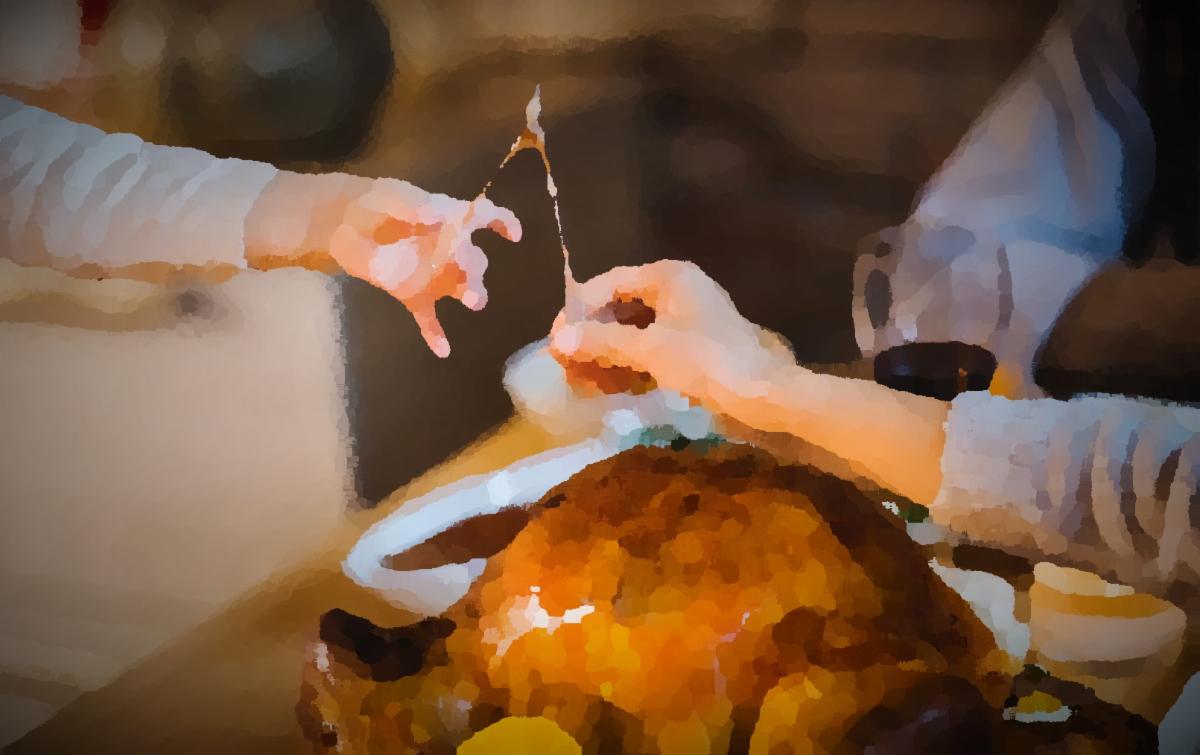When I was a kid, my favorite holiday wasn’t Christmas or Easter; it was Thanksgiving. I have the fondest memories of going to church in the morning and then to my grandmother’s house for the afternoon.
Grandma knew the art of cooking for large groups of people, and her food was amazing. All the relatives from my mom’s side of the family would be there. We got to see our country cousins and play with them in the huge basement or out in the big yard. The uncles would sit and watch the Lions lose again while the aunts prepared the banquet and pressed the kids into service setting tables. At the end of the day, we would head home with bloated stomachs and bags of leftovers and watch the kids’ TV specials that used to air around the holidays, like Mr. Magoo.
Thanksgiving is also the source of one of my less fond childhood memories … wishbones. I don’t know if people pull the wishbone anymore. The wishbone is the furcula, a Y-shaped bone in the breast of certain birds, like chickens and turkeys. You cut that bone out and let it dry. Then you hold one side of the bone and someone else the other. You both make a wish, and you pull it apart. It never breaks straight down the middle: someone always ends up with the bigger part of the bone. That’s the person whose wish is supposed to come true.
Well, wishbone-pulling is one of my less fond memories because I never, ever got the bigger piece. I was always stuck hanging on to a fractured stump and broken dreams.
Nowadays I have a very different view of the whole wishbone business. As a kid, I wished for things like a bike or a telescope or a bedroom all to myself. But as a grown-up, my wishes are completely different.I wish for the family just to be together.For a great meal to share with my loved ones.For the leisure to spend a whole day relaxing.And for the health to enjoy these blessings fully.
In other words, I wish for all the things that those wishbones of childhood already signified. Because ifyou have a nice big wishbone to pull, it stands to reason that you had: a turkey to eat, loved ones to share it with, and time to enjoy the day together. A big ol’ turkey wishbone is itself a wish come true, for the person who knows what the right things to wish for are.
Saint Paul says (1 Timothy 6:6) that “godliness with contentment is great gain.” Which means: the way to become truly rich is by learning to be happy with what God has given you.
On of the Gospel readings in the Thanksgiving season tells the same tale. It is the story of the Rich Fool who didn’t understand that having enough is already good enough. His wishbone was a barn packed to the rafters with grain and goods, yet he still pined for more, more, more. Then suddenly he died, and God asked him: That “more, more, more” that you were angling for … who gets it now?
For this reason, Christ introduced the parable with this warning (Luke 12;15): “Keep yourselves from covetousness, for a man’s life does not consist in the abundance of his possessions.” Covetousness is wishing for what someone else has and you don’t.
On this Thanksgiving, I wish … no, I pray … that you and I will be able to gather with loved ones and celebrate. I pray that we have good food and plenty. And above all, I pray that we see in the wishbone a symbol of all the blessings seen and unseen that have already been bestowed upon you. And when you break it, do so with the wish that you will have contentment and not covetousness, because having enough is good enough.
Thanks be to our God for all things that we receive in Christ Jesus our Lord. Amen!
Fr. Mark Sietsemais the priest at Holy Trinity Greek Orthodox Church in Lansing, Michiganand semi-serious Detroit Lions fan.


